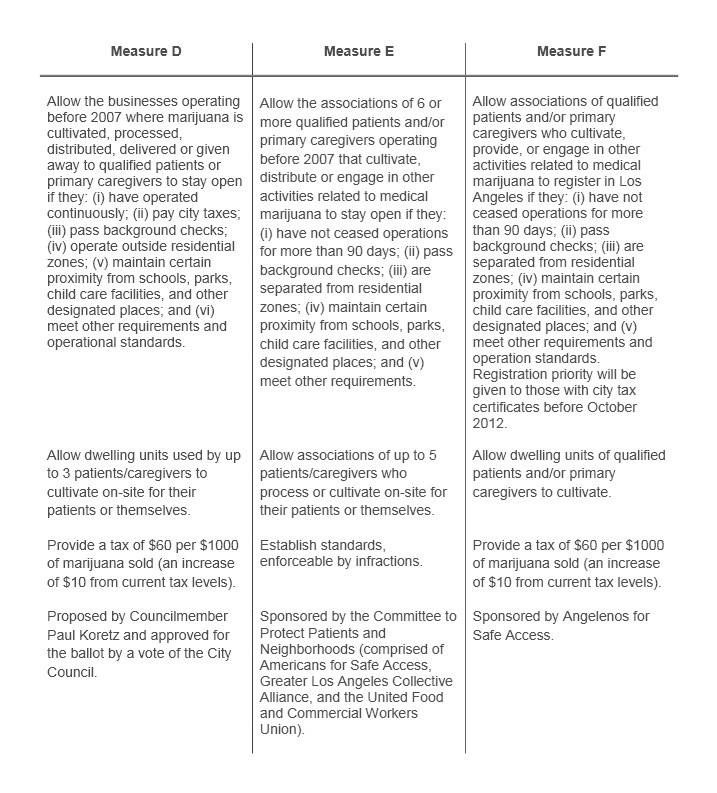California Supreme Court: Cities Can Ban Medical Marijuana Dispensaries
California’s medical marijuana laws allow medical marijuana patients to buy medicine from dispensaries. State law allows dispensaries where all the members are patients, who collectively associate, without profiting. (People v. Jackson.) But what about local laws that ban dispensaries? This is an important question because hundreds of localities across California have bans. Can counties, cities, and towns pass local ordinances restricting where or whether dispensaries operate? Today the California Supreme Court has unanimously ruled: Yes.
Today’s ruling comes in the case of City of Riverside v. Inland Empire Patients Health and Wellness Center, Inc., et al. (S198638.) The City of Riverside passed a local law disallowing medical marijuana dispensaries altogether, by declaring them public nuisances that the city can sue to abate. Then it sued the Inland Empire medical marijuana dispensary for nuisance abatement, but the dispensary appealed all the way to the California Supreme Court. The dispensary argued that Riverside cannot have a law banning dispensaries because that would be “preempted” by state law, which is superior to local law when they conflict.
The Supreme Court disagreed with the dispensary, and agreed with the city, deciding that California’s state medical marijuana laws do not preempt local medical marijuana laws banning dispensaries. First, the Supreme Court said there is no express preemption of local laws that ban dispensaries by declaring them nuisances, because the state laws (Compassionate Use Act and Medical Marijuana Program Act as amended) do not specifically mention dispensaries other than restricting their location. Next, the Court said there is no implied preemption, because the state laws do not require any activity prohibited by the local bans, and the local bans do not require any activity prohibited by the state laws. The Court found there is no field preemption, because the state laws are insufficiently comprehensive or detailed to “occupy the field” of regulating medical marijuana. “[T]he MMP simply removes otherwise applicable state sanctions from certain medical marijuana activities, and exhibits no similar intent to occupy the field of medical marijuana regulation.” (fn. 11.)
In its conclusion, the Court notes:
Of course, nothing prevents future efforts by the Legislature, or by the People, to adopt a different approach. In the meantime, however, we must conclude that Riverside‘s ordinances are not preempted by state law.
Here, the Court invites the Assembly and Senate to pass laws regulating medical marijuana in California. The Court also invites the voters to promulgate initiatives or constitutional amendments to regulate medical marijuana. The Court is right to note that lawmakers and/or voters can act to fix this. This year, in the Senate, Senate President Darrell Steinberg has introduced SB 439, which would regulate collectives and cooperatives, and in the Assembly, Assemblymember Tom Ammiano has introducedAB 473, which would allow the Department of Alcoholic Beverage Control to regulate medical marijuana thoroughly. If you agree that state law should prevent cities from banning medical marijuana dispensaries, contact your legislator and say so.
Angelenos to Vote on Changing the Medical Marijuana Landscape in Their City
Los Angeles, April 3, 2013. by Ellen Luu
Since the passage of the Compassionate Use Act of 1996, legislators have had little success creating a state-level regulatory scheme for the medical marijuana industry. The result—a patchwork approach that has left cities across California with confusing and differing regulations susceptible to federal attack. Los Angeles, home to over 700 medical marijuana dispensaries, is no exception. After nearly a year of uncertainty, voters will decide next month between three different ballot measures to regulate the city’s medical marijuana dispensaries.
By way of background, in 2007, the Los Angeles City Council adopted an ordinance prohibiting any new dispensaries from opening. Only existing dispensaries were allowed to operate after submitting proof of business tax registrations, permits, insurance, and other documentation. Since then, however, dispensaries have proliferated across the city, with estimates of up to 1000 in operation as of March 2013.
To address this issue, the Los Angeles City Council voted unanimously in July 2012 to ban an estimated 762 registered dispensaries, with an exception for dispensaries operating before the 2007 ordinance. After a group of patients, drug policy reform activists, dispensary operators, and a labor union representing dispensary workers submitted signatures for a ballot measure to overturn the ban, City officials temporarily suspended the ban to review and verify the signatures. The City Council subsequently rescinded the July ban, leaving the city with no law regulating the dispensaries until the May 21, 2013 election. Three measures will appear on the ballot:
- Measure D would limit the number of dispensaries to the original 135 operating before 2007 and increase the tax on sales.
- Measure E would limit the number of dispensaries to the original 135 operating before 2007.
- Measure F would allow an unlimited number of dispensaries that meet certain regulations and would increase the tax on sales.
Below is a chart presenting the details about each ballot measure:

As Los Angeles voters contemplate their options under the three ballot measures, the California Supreme Court will be reviewing a case on whether municipalities can ban medical marijuana dispensaries in light of state law, the Medical Marijuana Program Act, which allows dispensaries. A decision is expected in late spring or early summer and will provide guidance for local government officials and courts hearing cases challenging existing bans on medical marijuana dispensaries. While the decision may ultimately provide relief for local patients and the medical marijuana industry, it will not address the patchwork approach cities across the state have taken on the issue. A bill proposed by Assembly member Tom Ammiano will provide for the regulation of medical marijuana, from statewide standards for cultivation, manufacturing, testing, transportation, distribution, and sales, to policies for taxation of dispensaries and a licensing system.
